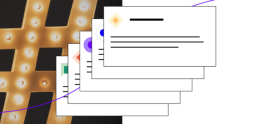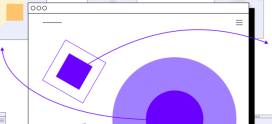Content Marketing: Blogging Your Book with WordPress
Producing sufficient high-quality content to feed a successful content marketing campaign can be both time consuming and expensive. Content is one of the most sustainable forms of marketing: once you’ve published content you own, it will continue to generate traffic and engagement well into the future, but, there are other ways that content can be turned to the advantage of businesses. Re-using the same content is tricky, and one certainly shouldn’t publish identical material in many different places online. Unless, that is, you are doing something with it that adds significant additional value for readers.
Collating blog posts into an ebook is one of most effective methods of reusing content. It allows users to access your material in one location, provides potential leads with an incentive to exchange their details for information that is valuable to them, and gives a focus for future marketing efforts that can pay off handsomely.
When Should You Blog Your Book?
A key question to ask here is whether you want to produce a book that will promote your existing business or blog. Ebooks that provide valuable content to users are a cornerstone of content marketing. If your blog serves to promote a wider business, then book blogging is an excellent strategy.
However, if your ebooks are going to be your business, then blogging your book is probably not wise. This is especially the case if you’re a creative writer or a writer aiming for traditional publication. Most publishers insist on first publication rights, so if you want to go this route, keep in mind that by posting content on the web you may be damaging future publication potential. By all means, blog to promote the book, but be wary of publishing your book’s content on your blog. Sometimes it works out, but usually only in the case of extremely popular blogs with name recognition that publishers find valuable for promotion — Stuff White People Like being an obvious example.
Plan In Advance
A book is much more than just a collection of blog posts. If you don’t plan in advance, and write at least a subset of your blog content with the intention of turning it into an ebook, you’re going to end up with either a very inferior ebook or a lot of rewriting work. An editorial calendar is a must. With an editorial calendar you can plan out chapters or sections of your book in advance, and then write them with future publication in ebook format in mind. This will help you produce a cohesive and coherent ebook, rather than a cobbled-together collection of articles with no tonal or thematic consistency.
You should also bear in mind that writing optimized for reading on the web as a blog post is not always appropriate for a book. They are very different mediums. Blogging — particularly promotional blogging — is a medium that encourages the virtues of concision, compression, and segmentation. A well-crafted blog post is more of a sonnet than an epic. Content written for books is not the same: ideally, it will be more discursive and richly detailed, with multiplied and expanded examples and deeper discussion.
Making A Book Of Your WordPress Blog
Once you have a collection of blog posts that you’d like to form into an ebook, there are various ways you can go about it. Of course, you can just take the content and use a PDF authoring tool, a word processor, or a tool like iBooks Author.
But, you can also install plugins into your WordPress blog that will streamline the process considerable. One of the more interesting is MagPress, a recently released plugin that enables bloggers to collate selected blog articles and publish them as an epub, mobi, or PDF file. It’s not free, but it’s probably the best available tool for creating an ebook from a WordPress blog.
An alternative to MagPress is Anthologize.
Whichever tool you choose, with a little forward thinking, transforming your blog’s content into an ebook is a powerful way to promote your brand and expertise.




